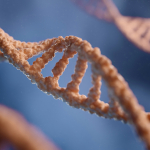International SGS Awareness Day Date in the current year: November 13, 2026
 International Schinzel-Giedion Syndrome Awareness Day, also known as International SGS Awareness Day, is observed annually on November 13. It was created to raise awareness of an extremely rare genetic neurodegenerative disorder that affects multiple organs.
International Schinzel-Giedion Syndrome Awareness Day, also known as International SGS Awareness Day, is observed annually on November 13. It was created to raise awareness of an extremely rare genetic neurodegenerative disorder that affects multiple organs.Schinzel-Giedion syndrome (SGS) is caused by a gain-of-function mutation of the SETBP1 gene on chromosome 18. This gene encodes SET-binding protein 1 (SETBP1), which plays an important role in embryonic development, particularly in brain development. A gain-of-function mutation means that the protein is not broken down properly, causing it to accumulate in cells and disrupt the embryonic development of many organs, including the brain. The SGS-causing mutation is spontaneous (de novo) and is not inherited from either parent.
Depending on where in the gene the mutation occurred, there are two types of SGS: classical and atypical. Patients with the classical form of the syndrome have more severe symptoms and an average lifespan of 18–48 months, while those with the atypical form have milder symptoms and may live into their early teens.
Patients with SGS typically have a small head and short neck, as well as distinctive facial features, including a prominent forehead, cheeks, and eyes, a shortened midface, a small chin and nose, a large mouth with a protruding tongue, and low-set ears.
Common SGS symptoms include severe neurodevelopmental delay, intellectual disability, seizures, kidney and bladder problems leading to recurrent UTIs, feeding and gastrointestinal (GI) problems, breathing problems leading to recurrent pneumonia, heart problems, hearing and vision impairment, sleep disturbances, dental and skeletal abnormalities, hypotonia (low muscle tone), alacrima (reduced or absent tear production), and an increased risk of developing cancer.
As mentioned earlier, patients with SGS have a short lifespan. An estimated 50% die before two years of age. The most common causes of death in infants are cardiac arrest, pneumonia, seizures, and tumors. Those who survive past infancy usually die of cancer. The longest-documented survivor with SGS is 15 years old.
Like most genetic disorders, SGS is incurable and has no disease-specific treatment. Management focuses on alleviating symptoms and improving quality of life. It may include antiepileptic medications (although seizures are often drug-resistant), feeding support through nasogastric or gastrostomy tubes, oxygen therapy or ventilatory support for respiratory problems, physical therapy, and palliative care.
International SGS Awareness Day was launched by the Schinzel-Giedion Syndrome Foundation, a registered UK charity established on November 13, 2019. The day’s main goals are to celebrate the foundation’s birthday, raise global awareness of SGS, and support affected families. You can get involved by learning more about the syndrome, sharing what you’ve learned with others, donating to an organization that supports patients or funds research, and spreading the word on social media.
- Category
- International Observances
- Tags
- International SGS Awareness Day, international observances, awareness days, International Schinzel-Giedion Syndrome Awareness Day